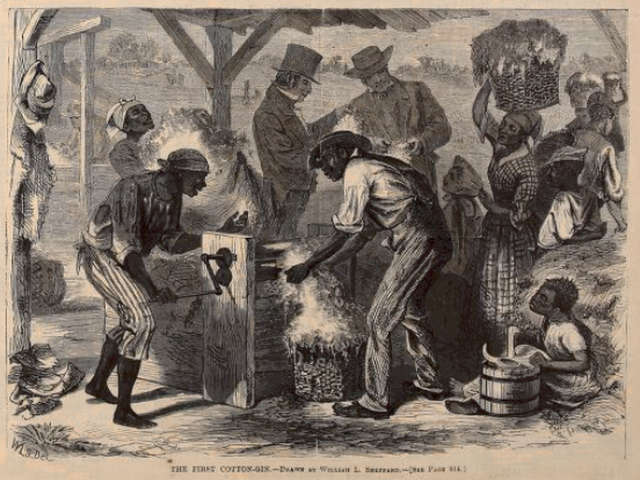Why values are more important than technology: Eli Whitney’s cotton gin
The values and goals of a system determine how a technology serves it.
Technology isn’t good or bad. People have values, not technology. Technology augments the values of the people using it (as does legislation).
Changing technology alone will not help with the environment. It will augment the values of people using it. It will accelerate what we’re already doing, in particular, it will lead to more pollution.
People often miss how the same technology can hurt by one set of values but help in another. Eli Whitney’s cotton gin is a great example. It enabled one person to process more cotton. It could have been used to decrease labor and therefore slavery, but the system using them didn’t value less labor, it valued profits. Instead of decreasing slavery, Whitney’s cotton gin is recognized as a major contribution to the Civil War, for the profits and power it brought the slavery system.

Historical examples include the Watt steam engine, which was more efficient than its predecessor. People expected coal use to decrease, but it increased, as lower costs led more people to use more engines for more purposes. Uber was predicted to lower miles driven and congestion but increased them. Lower costs led more people to take car trips. Podcast guest Mark Mills reported a statistic about transistors’ efficiency gains leading to more pollution is another example: “since 1995, energy used per byte is down about 10,000-fold, but global data traffic rose about a million-fold; global electricity used for computing soared. Since 1995, total world energy use rose by 50 percent, an amount equal to adding two entire United States’ worth of demand.” LEDs are on track to pollute more than incandescent bulbs as we use them to light things we never lit before. I don’t think anyone has measure it yet, but I predict that helicopter drones, which pollute a small fraction of a manned helicopter, will collectively pollute more than all helicopters, if they don’t already, because we build so many of them.
We have been chasing efficiency for centuries. Our world is more efficient than ever. The problem is overall pollution and we’re polluting more, more efficiently than ever. With a few swipes of your finger, you can summon someone to drive a two-ton vehicle to bring you dinner. The driver will barely have to press a couple pedals and turn a wheel. Dinner will come in packaging that you will dispose of, not clean. People can go days without breaking a sweat or physically challenging themselves, in the process polluting more than our ancestors did in a lifetime. Repeating Mark Mills, “efficiency increases energy demand,” though I would clarify: if we value energy growth over Do Unto Others As You Would Have Them Do Unto You, Leave It Better Than You Found It, and Live and Let Live.
We can restore those values instead, which I recommend and have made my mission. I contend that if we trade many of the comforts and conveniences we take for granted for restoring those values, that trade is worth it.
Read my weekly newsletter

On initiative, leadership, the environment, and burpees
Pingback: Another reason why an amendment banning pollution will pass and change culture » Joshua Spodek